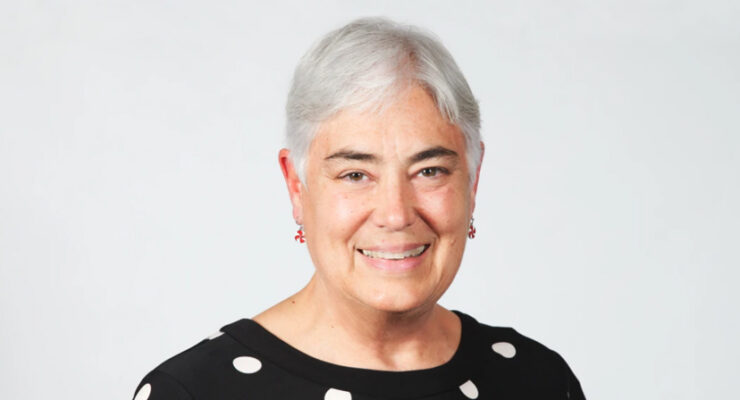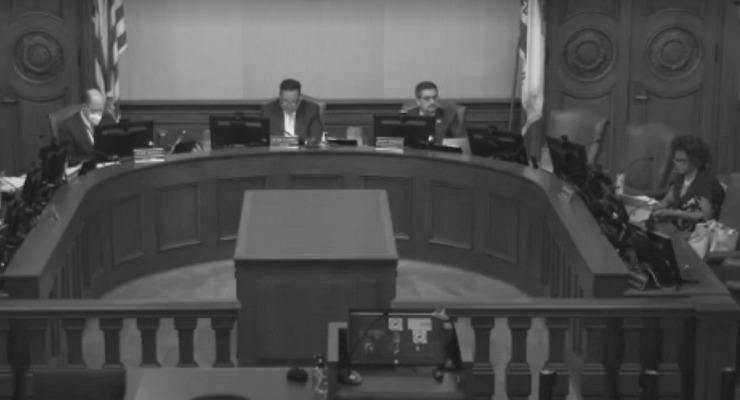
 Mendi Baron, clinical social worker and lecturer, understands that, yes, teens are different from adults, and yes, they know everything. No amount of fear mongering or preaching will reach them.
Mendi Baron, clinical social worker and lecturer, understands that, yes, teens are different from adults, and yes, they know everything. No amount of fear mongering or preaching will reach them.
There is, for example, the identity issue, that it seems every teen has.
As Baron explained in his recent lecture at the Pasadena Recovery Center, “This is part of the biggest challenge that (clinicians) have in dealing with teens. It’s something that many struggle with, even into their 30s. One of the biggest problems with that situation,” he continued, “is that we as parents and caseworkers, are not asking them the questions they need to answer about where they’re going now.”
As an example, Baron asked for a show of hands from the audience as he asked how many knew at a very young age what they would be as adults. Few hands shot up in the air. Asked how many adults in the audience had changed careers at least once, most of the hands in the room reached for the sky.
So, while Baron acknowledges that, despite protestations from any given generation, every new generation of teens is essentially the same, with the same set of problems and issues, as “ours.”
“One difference, though,” said Baron, “is that today’s generation have not had the experience of having tried things, and moved on. Different jobs, for example. Then, there is the fear of failure that stops them from engaging in the next level. So this fear of failure pushes them to engage in negative behaviors.”
“Add to that a feeling of ‘What’s out there for me? Why should I try and get better and stop harming myself if there is nothing for me on the other side?,’” Baron explained. “The adolescents of today don’t necessarily have the impetus to seek out where they want to be and where they want to go, and we’re not necessarily pushing them to do that. That’s something that we need to change.”
In addition, of course, young people are constantly bombarded with peer pressure, although this is something that is felt by adults as well to a lesser degree. “It’s not the number one cause of adolescent negative behavior,” says Baron, “but it is certainly the number one thing that leads them to experimentation.”
Adding to those pressures is the eternal problem of bullying. Only, the 2015 version of bullying doesn’t necessarily mean a jock in a letterman’s jacket stashing you in your locker (if you had one).
“These days,” said Baron, “the bully doesn’t have to be big, the kid being bullied doesn’t have to be a nerd, but the second that kid is knocked down, out comes the phone.
“Instagram. Facebook. WhatsApp. Text messages,” he continued. “The student’s social circles are so much more extensive than they used to be, they’re connected to this huge social environment, not just one school, but maybe ten schools. They’re talking to this social circle, and those might be kids who don’t really know you or care about you. And the bullying can be so much more intense. When someone takes a picture of you, and posts it online, even though they don’t have a million followers, it sure feels like it.”
Thus, in his treatment, Baron takes away the laptops and the cell phone, to “relegate their experience to one place at one time with people they can see and touch. This is critical.”
The teen years are some of the most difficult and most challenging time in a person’s life, Baron continued, “and acknowledging that is a really important part of treatment and intervening, because they can see right through you. Saying, ‘Here’s what I did and here’s what worked for me’ will not work.”
As Baron relates, “I tell parent, ‘Put away your stories,’, because your story won’t impact your kid right now. That kid will simply say, ‘You’re not me. I’m not you.’”
What Baron recommends instead, to clients and parents, is to let the teen know, that “What I did is what I did, and I am lucky to be here, this could have gone both ways, maybe I thought it was awesome and fun, but I also could have been dead, and I don’t want you to be.”
Baron describes the nature of treating adolescents with love and understanding succintly in his talk with a little tale: “A woman is walking along the beach, when she notices something gleaming in the sand. Kicking at it, she realizes it’s a diamond. She picks it up, puts it in her pocket, and keeps walking. A moment later a homeless man approaches her, asking, “Please can you help me. Im hungry, I need help, anything.”
She responds, “I only have this diamond.”
“I’ll take that,” he says, eagerly. She gives him the diamond, without a thought, and continues her walk on the beach.
A moment later he approaches her again, saying, “Please, take this back, I need something more!”
“What more could you possibly want?,” she asks.
He says, “I want whatever it was that was in you that allowed you to selflessly give me this diamond. That is what I want.”
It is that selflessness on the part of treatment workers that is so important to the treatment of young drug addicts, says Baron.
“Without that selflessness and without unconditional love, nothing else will work,” he said.
Pasadena Recovery Center Speaker Series hosts noted authors, entrepreneurs, celebrities, and experts to talk about their personal experiences with addiction and the way it has affected both themselves and the people around them. Past guests have included Dr. Drew Pinsky, Mackenzie Phillips, Pat O’Brien, Steve-O, Dr. Kevin Sabet, Robert Shapiro, David Sheff, Bob Forest, Kristen Johnston, Tommy Rosen, and more.
Pasadena Recovery Center is Located in the charming historic district of Pasadena, the Pasadena Recovery Center was co-founded in 2000 by renowned psychiatrist Dr. Lee Bloom, his daughter Alison Triessl, and his son Michael Bloom. The 98-bed drug and alcohol treatment center is nationally known for its 12-step based comprehensive treatment program and highly skilled, licensed and certified staff. Pasadena Recovery Center is dedicated to providing compassionate, comprehensive care to those suffering from chemical dependency and is proud to offer lifesaving and life-changing treatment at an affordable cost. The Pasadena Recovery Center’s goal is to reintroduce sober individuals into society with the skills necessary to lead meaningful, productive lives. http://www.pasadenarecoverycenter.com/














 0 comments
0 comments


